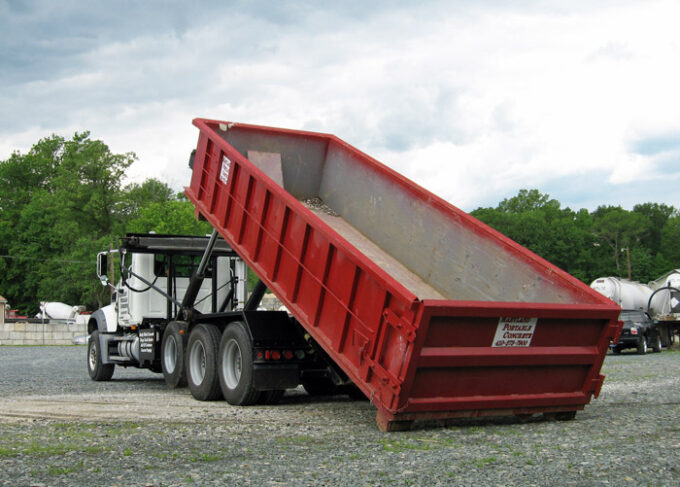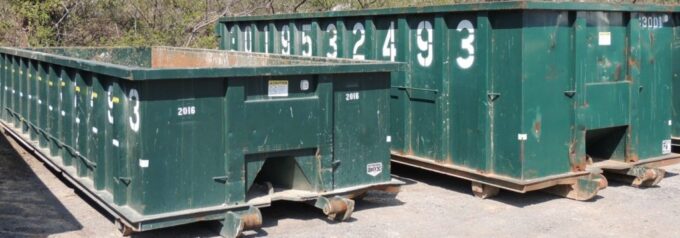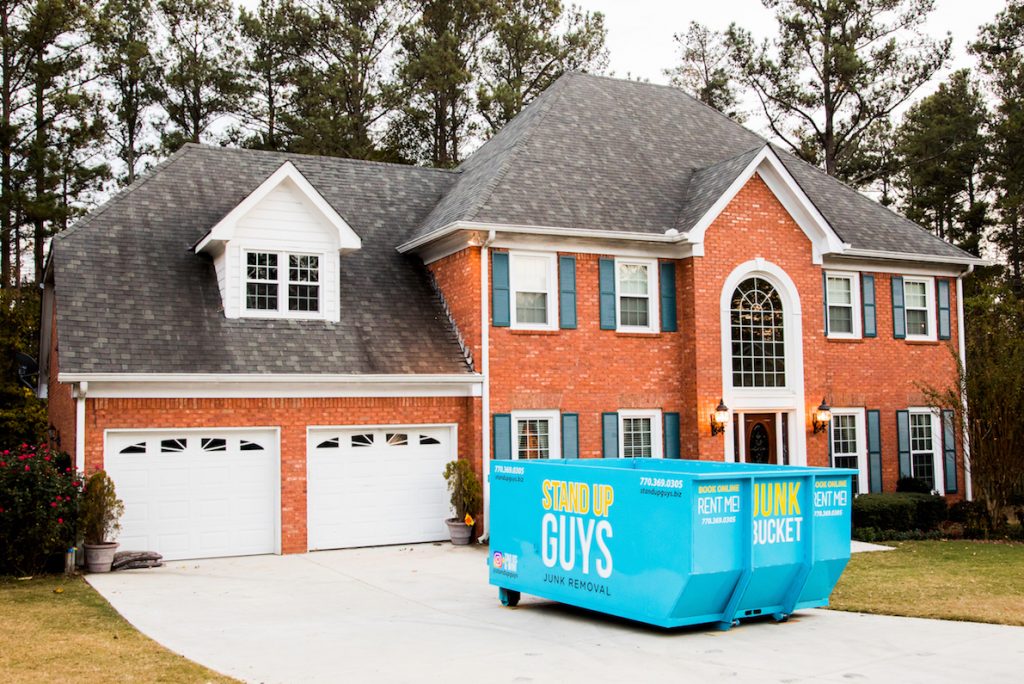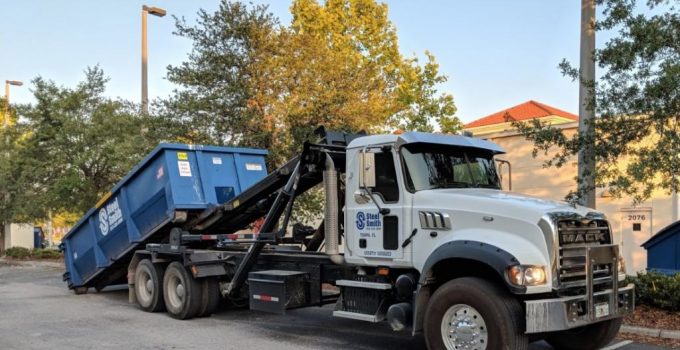A roll-off dumpster or container is a term used to describe large containers with an open-top, mainly used on commercial and residential properties. It is commonly used to collect waste for construction, home remodeling, or demolition projects. Once all the waste is collected, specially-designed hauling trucks will collect the dumpster.
A roll-off container provides a convenient, efficient, and easy way to deal with cleanups. Dumpster rental companies such as dumpsterrentalmaui.com provide affordable rates, reasonable terms, and rapid services to ensure that the process of renting a roll-off container is transparent and hassle-free.
Certain factors determine the total rental cost as listed below.
1. Location

Source: marylandportableconcrete.com
When you rent a roll-off container, the process includes dumpster delivery to your location, and once the waste is collected, a refuse truck will be sent to your location, to collect the dumpster and dispose off the waste. A major factor that affects the rental quote is the distance between your location and that of the company from where you select the dumpster.
The rental prices differ from place to place, depending on regional regulations on recycling or sorting, local disposal fees, demand, and of course, fuel costs. The flat rates cited by the rental company will also include variable taxes that are governed by your location.
For example, the price for a dumpster is likely to be higher in East or West Coast cities, like Los Angeles, as opposed to a smaller Midwest town, factoring in the aspects of availability and processing center of landfill laws, that increase disposal costs.
2. Rental Period
Another important factor that affects the rental cost, is the duration for which you want to keep the dumpster box on site. Most companies offer a rental period of a week to ten days, and some offer only a short, three-day rental period.
If you want to use the dumpster for a longer period, it will affect its final rental price. So, for long-term projects, it is important to notify the concerned company, and check out any ongoing, long-term rental offers, to avoid additional charges or fines on the flat rate.
Most dumpster companies charge an additional price anywhere between $5-$20 for every additional day a dumpster is rented, because if a roll-off dumpster doesn’t earn an income for weeks and remains idle, it’ll incur losses.
In case you need to rent a roll-off dumpster for a construction project, these tips can be kept in mind, to avoid additional costs. First, make sure that all necessary permits for the project that may delay the return of the container, are obtained. Second, if a large amount of waste is required to be thrown away, try to collect it all in one location and dispose it off as soon as the dumpster arrives.
3. Dumpster Size

Source: lcirecycling.com
Roll-off containers come in several sizes, the smallest being 10 cubic yards. The biggest size offered by companies is usually 40 cubic yards. The size that will suit your needs depends on the type, and weight of the debris that you wish to dispose off.
The rental price increases proportionally, with an increase in the size of the dumpster. This is because a bigger dumpster can retain more waste than a smaller one, and more waste means a heavier weight. Hence, the rental company will have to pay more to dispose off the waste.
To get a clearer picture of the total rental cost, most companies include the volume of weight different containers can carry, along with the size. For example, if you’re looking for a dumpster for a small-scale home renovation or remodeling project, garage cleanout, or junk removal, a 10-yard dumpster can be used. This small size is also perfect for dirt or concrete disposal.
4. Debris Type
Another factor taken into consideration in the rental price is the debris type. Depending on the type of waste material being disposed of, the haulers for the rental company will have to go to different, dedicated processing facilities or landfills. Broad categories of debris types include residential and construction waste.
Construction waste includes heavyweight debris such as asphalt, concrete blocks, or bricks, landscaping waste such as grass, twigs, dirt or stumps, underlayment material including roofing tiles and shingles, gravel or felt paper, and building materials like drywall, lumber, wall siding, or flooring.
Residential waste includes furniture, electronics, and appliances, household junk, cardboard, yard waste from gardening, or lawn care, such as grass clippings, twigs, leaves, weeds, and bushes. Before renting a roll-off dumpster, it is a good idea to check with the company whether or not they accept the type of waste you’re looking to throw away.
5. Debris Weight

Source: standupguys.biz
Landfills and waste processing plants charge disposal costs as per the tonnage of the trash. The heavier the roll-off dumpster, the more it will cost to dispose off its contents. Therefore, it is vital to make sure that the total weight of the waste you dispose off, doesn’t exceed the weight limit, as specified by the rental company. Some waste management sites include a calculator, to give you an idea of the size of the dumpster you may require, as per weight.
If, for example, the company’s refuse truck gets pulled over by the authorities, the roll-off truck will be weighted with the help of a mobile scale. If the truck is over the legal hauling limit, as per the state bylaws, a ticket will be issued, starting with a fine of nearly $2000. The amount will be charged to the client, hence increasing the rental price.
Apart from these five factors, some things can result in an overage fee. These include exceeding the discussed rental period, violating the terms and conditions of the rental contract, and going over the weight limit of the container. Some companies may also charge an additional fee if the delivery or pick-up cannot be completed due to obstacles from your side, such as missing the agreed-upon time. So, it is important to be well-prepared.
Conclusion
The cost of renting roll-off dumpsters differs mostly due to the location, size, and rental period that you prefer. The type and weight of the waste to be thrown away are additional factors that will help you decide on desirable container size. The cost of a small dumpster will be around $300 to $400, whereas a large one can cost anywhere between $550 to $800.







